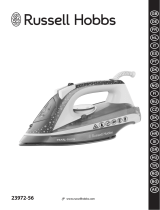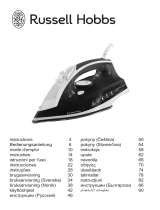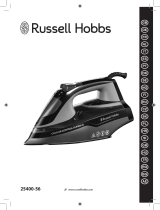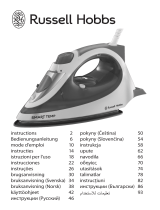
- Check if the voltage indicated on the appliance corresponds to the
local mains voltage before you connect the appliance.
- Do not use the appliance if the plug, the mains cord or the appliance
itself shows visible damage, or if the appliance has been dropped
or leaks.
- If the mains cord is damaged, you must have it replaced by Philips, a
service centre authorised by Philips or similarly qualied persons in
order to avoid a hazard.
- Never leave the appliance unattended when it is connected to the
mains.
- This appliance is not intended for use by persons (including children)
with reduced physical, sensory or mental capabilities, or lack of
experience and knowledge, unless they have been given supervision
or instruction concerning use of the appliance by a person
responsible for their safety.
- Children should be supervised to ensure that they do not play with
the appliance.
- Do not let the mains cord come into contact with the hot soleplate
of the iron.
- Only connect the appliance to an earthed wall socket.
- Check the mains cord regularly for possible damage.
- The soleplate of the iron can become extremely hot and may cause
burns if touched.
- When you have nished ironing, when you clean the appliance, when
you ll or empty the water tank and also when you leave the iron
even for a short while: set the steam control to position O, put the
iron on its heel and remove the mains plug from the wall socket.
- Always place and use the iron on a stable, level and horizontal
surface.
- Do not put perfume, vinegar, starch, descaling agents, ironing aids or
other chemicals in the water tank.
- This appliance is intended for household use only.
7

















